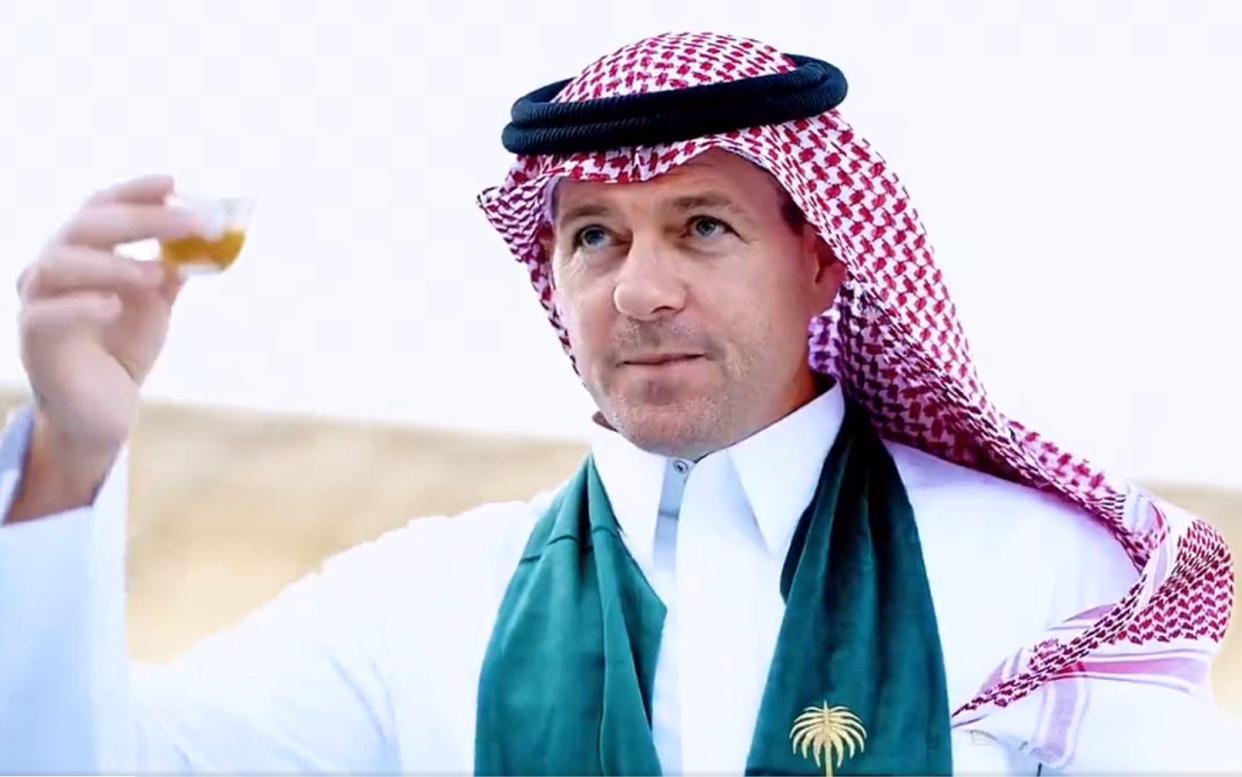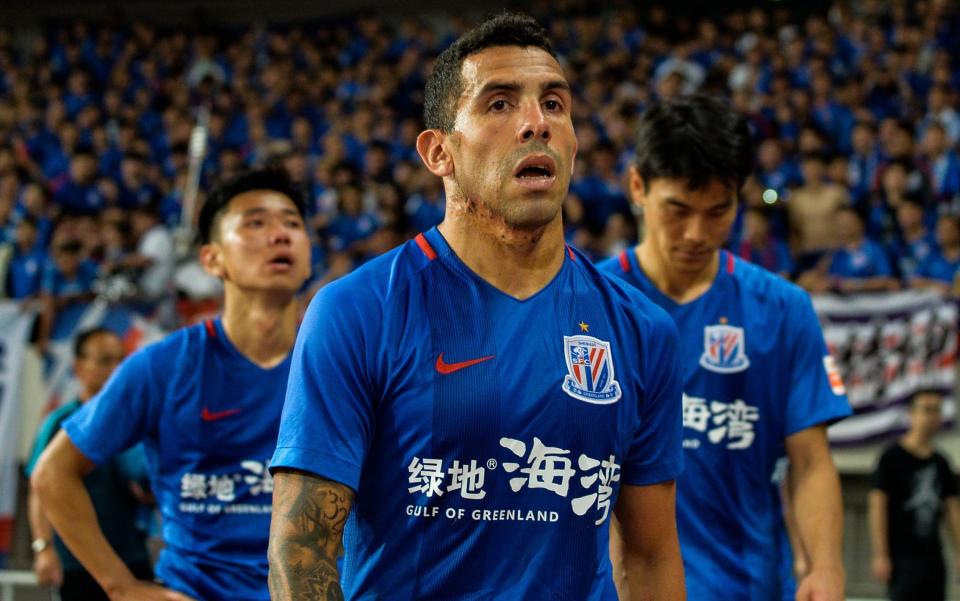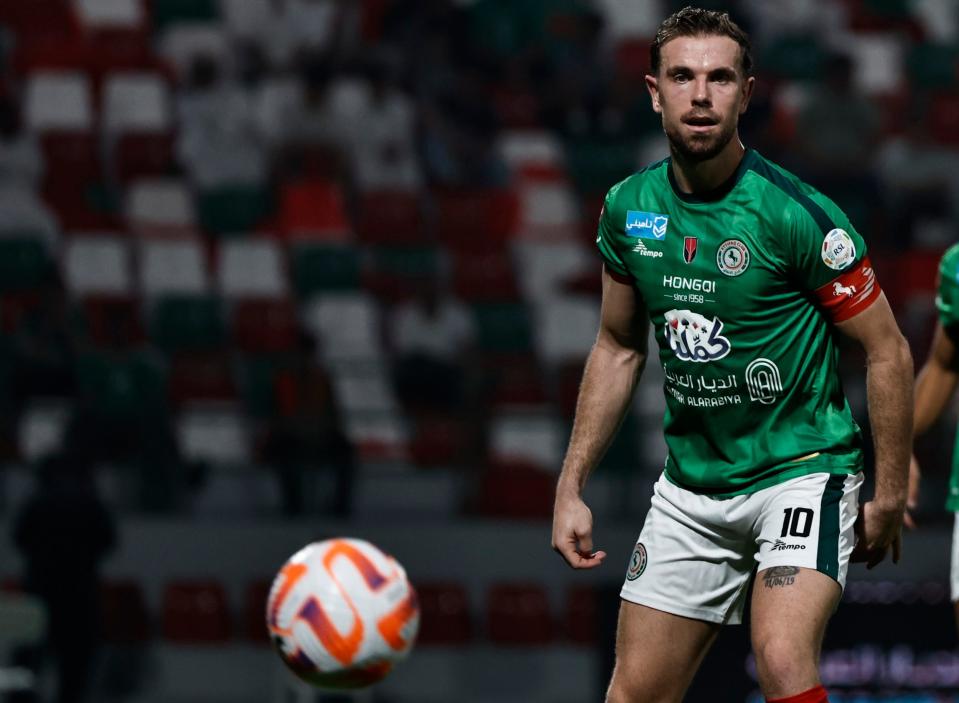China's slide into football abyss a lesson for Saudi Arabia

- Oops!Something went wrong.Please try again later.
- Oops!Something went wrong.Please try again later.
- Oops!Something went wrong.Please try again later.
- Oops!Something went wrong.Please try again later.
The China men’s squad at the Asian Cup were ordered by those who call the shots in Chinese football to watch a new documentary featuring a former team-mate of Wayne Rooney, as part of last month’s pre-tournament preparation.
This was not, unfortunately for them, one of the cheerfully uncritical biographies commissioned on Cristiano Ronaldo or Peter Crouch. It was, Chinese media reported, a gritty story that featured prominently Li Tie. He was an Everton midfielder in David Moyes’s mid 2000s Goodison Park side, a China international, and he now faces a prison sentence.
Li Tie confessed on the documentary on CCTV, the state broadcaster, to his part in a corruption scandal that state authorities say they uncovered in the Chinese Super League. Li Tie was placed under investigation in 2022 and is alleged to have conspired to fix matches at two clubs before he went on to manage the national team for two years until 2021. He admitted to a wide range of offences although there are no precise details available as to the judicial process, or how long his sentence might be.
Just so the message was not lost on the China players, they were ordered, the country’s media reported, to write an essay on the conclusions they drew from Li Tie’s misadventures. Whatever the long-term benefits, performance was not one of them. China bombed out the Asian Cup without scoring a goal, encompassing defeat to the hosts Qatar and draws with Tajikistan and Lebanon.
On Monday, the world’s most indebted company, the Chinese property giant Evergrande, was wound-up in a Hong Kong court owing $328 billion (£285 billion). Evergrande also has a majority share in a football club, currently in the second tier. In those salad days of the Chinese football boom Guangzhou Evergrande was managed by two World Cup-winning coaches, Marcello Lippi and Luiz Felipe Scolari, and twice by Fabio Cannavaro, a World Cup-winning captain. Come next season they may no longer even exist.
The money flooded into Chinese football, and then it flooded out to players, agents and European clubs. The high point being China’s extended January-February window seven years ago when they outspent every league in the world including the Premier League. Over a couple of years Didier Drogba, Carlos Tevez, Nicolas Anelka and others came and went, and then gradually the whole thing fell apart.

The parallels with Saudi Arabia’s boom are clear: a state-backed investment programme mandated from the very top. Vast amounts of money spent on famous foreign names for the benefit of a largely bemused domestic audience. In China football eventually fell victim to the politics of the ruling elite. The nation’s political weather changed and the Chinese Super League’s fate was sealed by huge taxes imposed on imported players.
Marouane Fellaini departed recently, leaving the former Chelsea and Brazil star Oscar as the sole survivor of the big names – a seven-year veteran of Chinese football’s boom and bust. The fortunes of the men’s national team have not improved in the interim although the women’s have a top 20 Fifa ranking.
With China, the spending was not the prelude to something – it was the thing. How might Saudi Arabia be any different? The Saudi Pro League clubs spent the equivalent of £800 million on fees last January. That fell to £25 million this January. The average attendance this season is 8,400. Jordan Henderson lasted seven months. Karim Benzema has been obliged to deny suggestions he sought to do the same.

The country will stage the 2034 World Cup finals in 10 years, which will likely keep the minds of Mohammed Bin-Salman and his ruling elite more focused than China. This is a policy foremost aimed at the Saudi population but for it to work on a domestic audience it also needs that audience to bask in international credibility, which is what the expensive foreign players were intended to provide.
Even for an authoritarian government trying to crowbar football into the domestic agenda, the cynicism of European football must take the breath away. For all the fees and contracts lavished, European football does not want to be their friend – it just wants their money.
For those players and agents seeking huge deals, and the clubs looking for fees to ease financial fair play limitations, Saudi briefly turbo-charged the global football economy last January, as China had done in 2017. Fifa has partnered with Saudi Arabia in its battle with Uefa. But whatever plans China or Saudi Arabia had to build the game are of no real interest to the old European money. They just want a slice of whatever deal might be on the table.
In their gripping history of the Crown Prince Bin-Salman’s rise to power in Saudi Arabia, “Blood and Oil”, the authors Bradley Hope and Justin Scheck describe the Saudi leader drawing the world’s banking elite to Riyadh for conferences and presentations on Saudi’s future. “Attendees spent their days listening to talks on artificial intelligence and alternative energy,” they write, “but really they were there in the hopes of extracting money from Saudi Arabia’s sovereign wealth fund.”
The European approach to the Chinese football market was simply wealth extraction – and extract it they did. The collapse was perhaps no better exemplified than at the club appropriately named Hebei China Fortune, one of those at which Li Tie’s alleged match-fixing took place. Fortune’s history epitomises the butterfly lifespan of Chinese football’s stay on the world stage.
Founded in 2009, Fortune were managed by a seriously diverse cast of characters, including Raddy Antic, Manuel Pellegrini and Chris Coleman. By November 2022 they were in financial trouble and fined for non-payment of salaries. They finished that season last, with a goal difference of minus-97, and were wound up last year. Their best-ever top-flight finish was fourth.
It should not be hard for Saudi Arabia to make a better job of it than China, although the authoritarian state playbook for leveraging football’s popularity now has some clear lessons. You need to spend an outrageous amount of cash and expect European football to trouser as much of it as it can.

